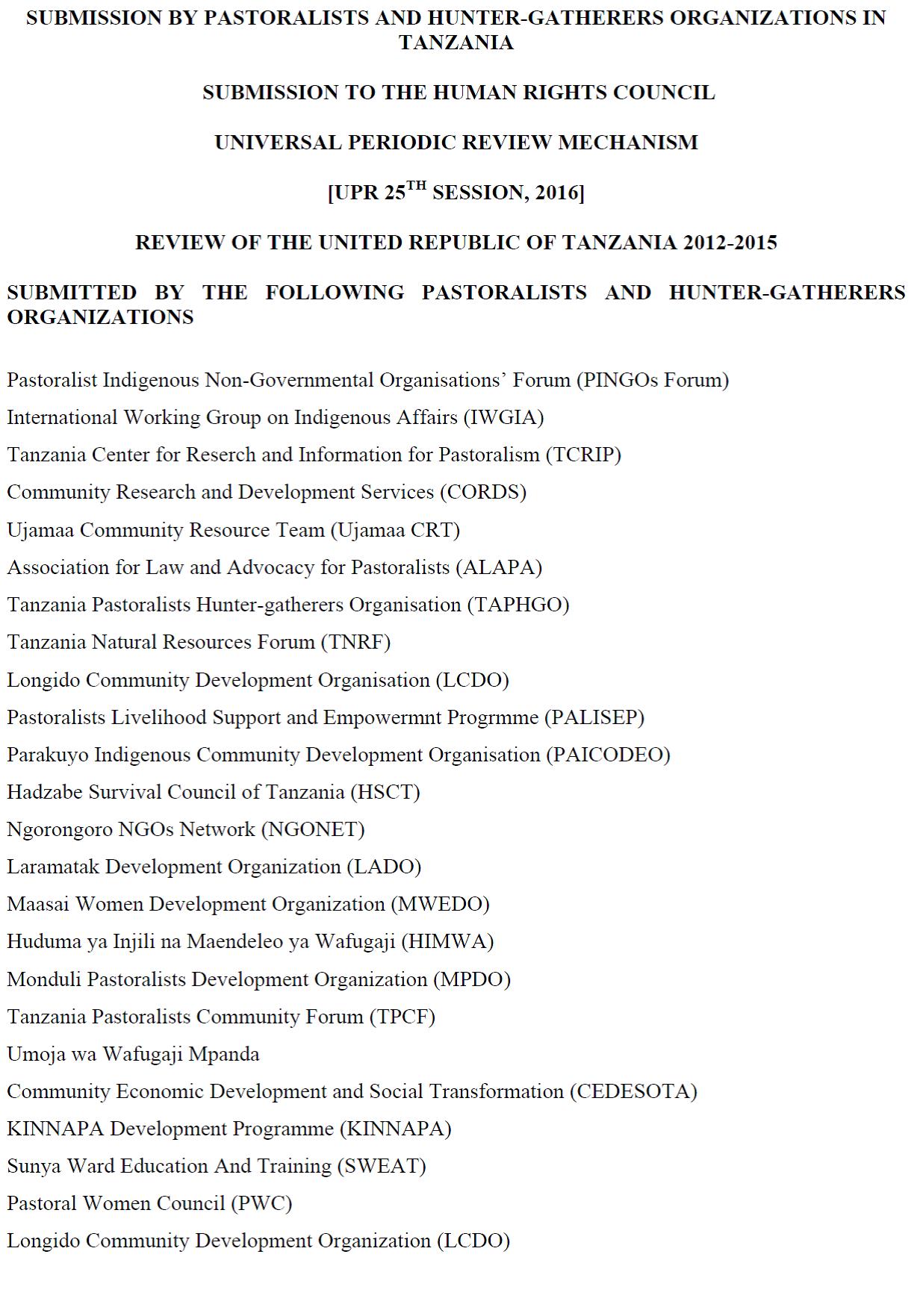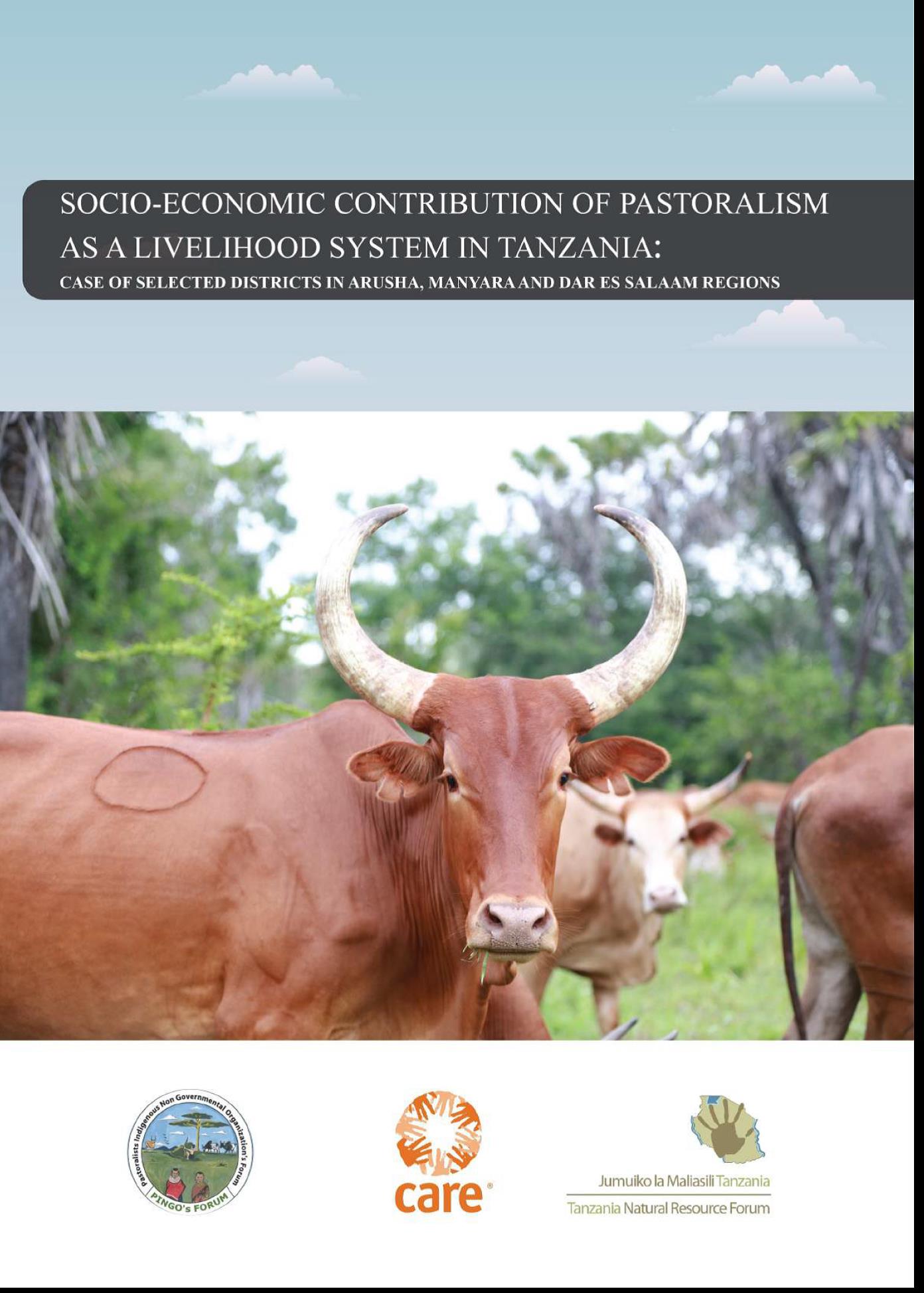Location
The Tanzania Natural Resource Forum seeks to improve governance and accountability in Tanzania’s natural resource sector to achieve more sustainable rural livelihoods and better conservation outcomes. As a member-driven NGO, TNRF works to improve policy and practice for the better, by helping to bridge the gap between:
- People’s local natural resource management needs and practices; and
- National natural resource management priorities, policies, laws and programs
TNRF supports its members by improving communication, sharing information, promoting collaboration and strengthening collective action. TNRF has a growing membership of more than 3,800 people and organizations, supporting professional staff, and a steering committee drawn from the membership.
Vision
To see policy and practice in the natural resource sector changed for the better– through improved governance and accountability.
Mission
To bring about improved natural resource governance in Tanzania by being a demand-driven network of members and partners that helps people to bridge the gap between people’s local natural resource management needs and practices, and national natural resource management priorities, policies, laws and programs.
Members:
Resources
Displaying 11 - 15 of 54Submission by Pastoralists and Hunter-Gatherers Organizations in Tanzania
This is a stakeholder submission prepared by a coalition of 24 pastoralists and huntergatherers’ Civil Society Organizations (CSOs), forums, networks and groups. The stakeholders submission is a compilation of primary and secondary sources of information, evidence and facts collected through consultative meetings and interviews with civil society organizations, public officials and community members, experts on pastoralism as well as members of the academia.
Submission by Pastoralists and Hunter-Gatherers Organizations in Tanzania
This is a stakeholder submission prepared by a coalition of 24 pastoralists and huntergatherers’ Civil Society Organizations (CSOs), forums, networks and groups. The stakeholders submission is a compilation of primary and secondary sources of information, evidence and facts collected through consultative meetings and interviews with civil society organizations, public officials and community members, experts on pastoralism as well as members of the academia.
Submission by Pastoralists and Hunter-Gatherers Organizations in Tanzania
This is a stakeholder submission prepared by a coalition of 24 pastoralists and huntergatherers’ Civil Society Organizations (CSOs), forums, networks and groups. The stakeholders submission is a compilation of primary and secondary sources of information, evidence and facts collected through consultative meetings and interviews with civil society organizations, public officials and community members, experts on pastoralism as well as members of the academia.
Submission by Pastoralists and Hunter-Gatherers Organizations in Tanzania
This is a stakeholder submission prepared by a coalition of 24 pastoralists and huntergatherers’ Civil Society Organizations (CSOs), forums, networks and groups. The stakeholders submission is a compilation of primary and secondary sources of information, evidence and facts collected through consultative meetings and interviews with civil society organizations, public officials and community members, experts on pastoralism as well as members of the academia.
Soci0-Economic Contribution of Pastoralism as a Livelihood System in Tanzania
Tanzania is endowed with numerous resources including livestock. It is number three country in Africa in terms of livestock population after Ethiopia and Sudan. Currently, the country (Tanzania) has more than 22 million livestock, of which at least 95% are indigenous animals kept under traditional livelihood model known as indigenous pastoralism. At least 70% of Tanzanians earn their living through agro-pastoralism whereby around 40% of them entirely practices indigenous pastoralism.



